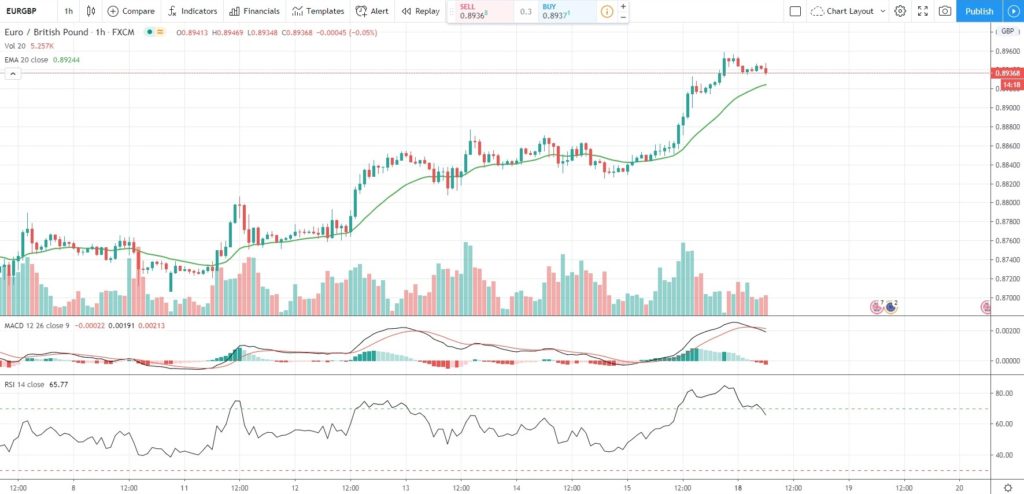EUR/GBP remained in proximity to Friday’s seven-week high of 0.8959 during early European trade on Monday, as the prospect of negative interest rates still weighed on the Sterling. Such a move was not ruled out by Bank of England’s chief economist Andy Haldane.
As of 7:06 GMT on Monday EUR/GBP was gaining 0.05% to trade at 0.8940, after touching an intraday high of 0.8954.
In an interview with the Sunday Telegraph, Haldane said that the UK would have to reabsorb the vast number of workers who might lose their jobs as a result of the COVID-19 pandemic. He also highlighted the possibility of the country going back to the high levels of unemployment, which were faced during the mid-1980s.
“The very reason I got into economics and the reason I got into public policy was because of the scarring experience of the early 80s unemployment, which peaked at three and a bit million – and we’re going back to that basically,” BoE’s Haldane told the Sunday Telegraph.
“Those fears are going to be cast over a much wider cohort of the workforce, maybe as much as half of them. We need to find a way of reabsorbing all of that labour as quickly as possible in good jobs,” he added.
Earlier in May Bank of England warned that the rate of unemployment in the country could rise to 9% by the end of the spring season, which would be a level unseen since at least 1994.
In light of these remarks, market players will be paying a close attention to the UK claimant count change and unemployment data, scheduled to be released on Tuesday. The number of people who filed for unemployment benefits probably surged to 150,000 in April, according to market expectations, from 12,200 in March, while the rate of unemployment probably rose to 4.4% during the three months to March from 4.0% in the three-month period to February. The Office for National Statistics will report the official numbers at 6:00 GMT.
Additional focus will be set on German and Eurozone’s economic sentiment data due out at 9:00 GMT tomorrow.
Bond Yield Spread
The spread between 2-year UK and 2-year German bond yields, which reflects the flow of funds in a short term, equaled 73.5 basis points (0.735%) as of 6:15 GMT on Monday. It has been the lowest spread since May 14th (70.9 basis points).
Daily Pivot Levels (traditional method of calculation)
Central Pivot – 0.8903
R1 – 0.8976
R2 – 0.9014
R3 – 0.9087
R4 – 0.9161
S1 – 0.8865
S2 – 0.8792
S3 – 0.8754
S4 – 0.8717
The pair has been overbought, as indicated by the 14-period Relative Strength Index (RSI) and is still holding above its 20-period Exponential Moving Average (EMA). Immediate resistance may be encountered at the May 15th high of 0.8959 and then, at 0.8973 (the high from March 31st). Support may be received at the 20-period EMA (0.8925).





